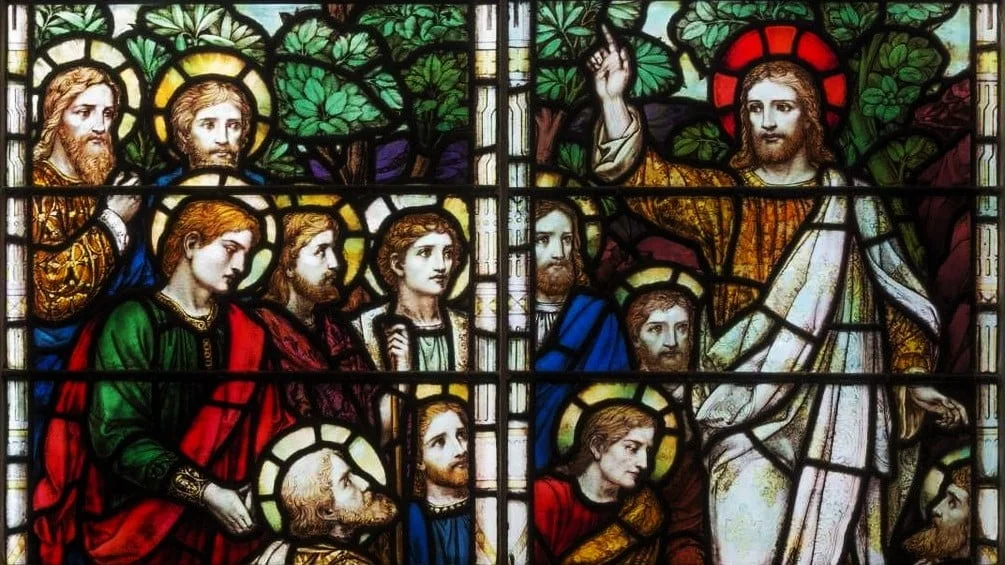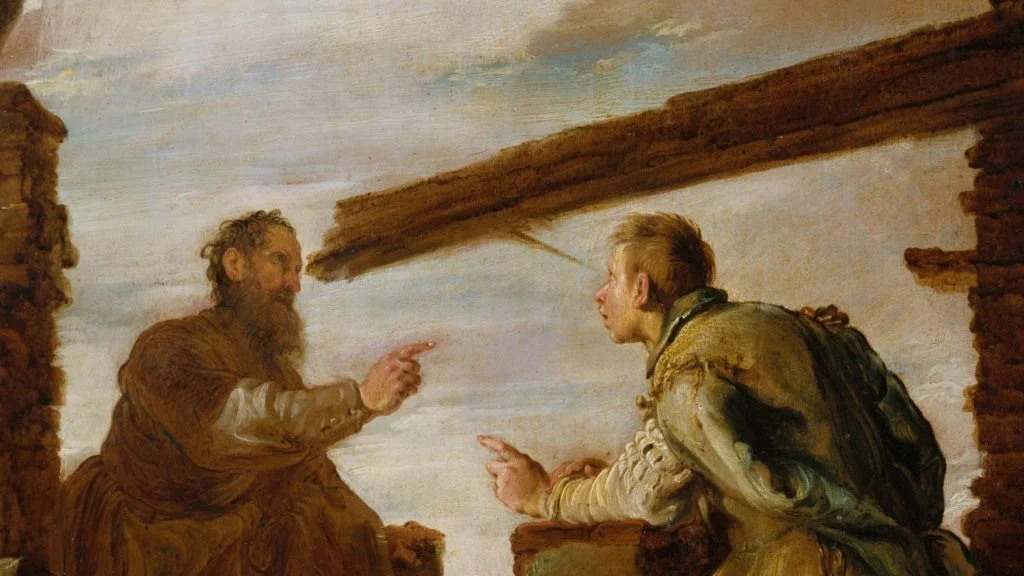DAILY GOSPEL COMMENTARY:
JESUS CALLS THE TWELVE APOSTLES
Lk 6:12–19

Gospel Commentary from the Navarre Bible, Commentary of the Gospel of St. Luke (with permission)
- 12 Since Jesus is God, why does he pray? There were two wills in Christ, one divine and one human (cf. St Pius X Catechism, 91), and although by virtue of his divine will he was omnipotent, his human will was not omnipotent.
- When we pray, what we do is make our will known to God; and therefore Christ, who is like us in all things but sin (Heb 4:15), also had to pray in a human way (cf. Summa theologiae III, q.21, a.1).
- Reflecting on Jesus at prayer, St Ambrose comments: “The Lord prays not to ask things for himself, but to intercede on my behalf; for although the Father has put everything into the hands of the Son, still the Son, in order to behave in accordance with his condition as man, considers it appropriate to implore the Father for our sake, for He is our Advocate. . . . A Master of obedience, by his example he instructs us concerning the precepts of virtue: ‘We have an advocate with the Father’ (1 Jn 2:1)” (Expositio Evangelii sec. Lucam, in loc.).
- 12-13 The evangelist writes with a certain formality when describing this important occasion on which Jesus chooses the Twelve, constituting them as the apostolic college:
- “The Lord Jesus, having prayed at length to the Father, called to himself those whom he willed and appointed twelve to be with him, whom he might send to preach the Kingdom of God (cf. Mk 2:13-19; Mt 10:1-42). These Apostles (cf. Lk 6:13) he constituted in the form of a college or permanent assembly, at the head of which he placed Peter, chosen from among them (cf. Jn 21:15-17). He sent them first of all to the children of Israel and then to all peoples (cf. Rom 1:16), so that, sharing in his power, they might make all peoples his disciples and sanctify and govern them (cf. Mt 28:16-20; and par.) and thus spread the Church and, administering it under the guidance of the Lord, shepherd it all days until the end of the world (cf. Mt 28:20). They were fully confirmed in this mission on the day of Pentecost (cf. Acts 2:1-26). . . . Through their preaching the Gospel everywhere (cf. Mk 16:20), and through its being welcomed and received under the influence of the Holy Spirit by those who hear it, the Apostles gather together the universal Church, which the Lord founded upon the Apostles and built upon Blessed Peter their leader, the chief cornerstone being Christ Jesus himself (cf. Rev 21:14; Mt 16:18; Eph 2:20). That divine mission, which was committed by Christ to the Apostles, is destined to last until the end of the world (cf. Mt 28:20), since the Gospel, which they were charged to hand on, is, for the Church, the principle of all its life for all time. For that very reason the Apostles were careful to appoint successors in this hierarchically constituted society” (Vatican II, Lumen gentium, 19-20).
- Before establishing the apostolic college, Jesus spent the whole night in prayer.
- He often made special prayer for his Church (Lk 9:18; Jn 17:1ff), thereby preparing his Apostles to be its pillars (cf. Gal 2:9). As his Passion approaches, he will pray to the Father for Simon Peter, the head of the Church, and solemnly tell Peter that he has done so: “But I have prayed for you that your faith may not fail” (Lk 22:32).
- Following Christ’s example, the Church stipulates that on many occasions liturgical prayer should be offered for the pastors of the Church — the Pope, the Bishops in general, and priests; asking God to give them grace to fulfil their ministry faithfully.
- Christ is continually teaching us that we need to pray always (Lk 18:1). Here he shows us by his example that we should pray with special intensity at important moments in our life.
- “‘Pernoctans in oratione Dei. He spent the whole night in prayer to God.’ So St Luke tells of our Lord. “And you? How often have you persevered like that? Well, then…” (St. Josemaria, The Way, 104).
- […]
- 14-16 Jesus chose for Apostles very ordinary people, most of them poor and uneducated; apparently only Matthew and the brothers James and John had social positions of any consequence.
- But all of them gave up whatever they had, little or much as it was, and all of them, bar Judas, put their faith in the Lord, overcame their shortcomings and eventually proved faithful to grace and became saints, veritable pillars of the Church.
- We should not feel uneasy when we realize that we too are low in human qualities: what matters is being faithful to the grace God gives us.
- 19 God became man to save us. The divine Person of the Word acts through the human nature which he took on. The cures and casting out of devils which he performed during his life on earth are also proof that Christ actually brings Redemption and not just hope of Redemption. The crowds of people from Judea and other parts of Israel who flock to him, seeking even to touch him, anticipate, in a way, Christians’ devotion to the Holy Humanity of Christ.
VIDEO COMMENTARY
TOPIC: CAN YOU BRING OTHERS WITH YOU TO HEAVEN?
In today’s gospel reading, Jesus chooses twelve from among His many disciples to become His apostles. We make a distinction here – disciples are those who commit to follow Christ, while apostles are those who act as emissaries to spread the teachings of Jesus.
We reflect today on our becoming effective apostles, evangelizers, to those around us.
Stay updated: subscribe by email for free TO OUR NEW WEBSITE www.catholicsstrivingforholiness.org (PUT YOUR EMAIL IN THE SUBSCRIBE WIDGET).
We are also in www.fb.com/Catholicsstrivingforholiness. Kindly help more people in their Christian life by liking our page and inviting your family, friends and relatives to do so as well. Thanks in advance and God bless you and your loved ones! Fr. Rolly Arjonillo

